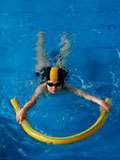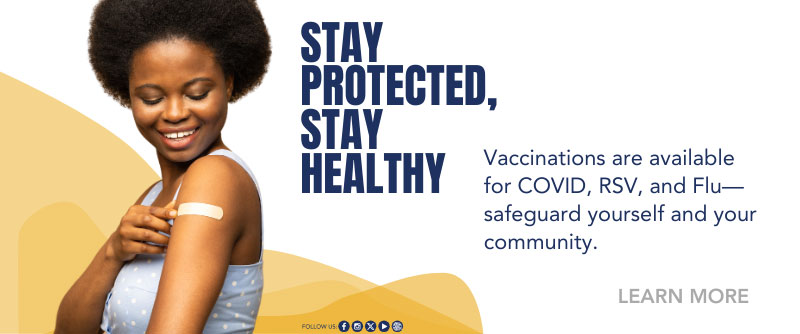
Illnesses associated with swimming are on the rise. Summer is a time to enjoy the water, but also to take steps to remain healthy while you do.
Contrary to popular belief, chlorine does not kill all germs immediately. Some germs are very tolerant of chlorine and can cause serious illness. It can take anywhere from minutes to days for chlorine to kill them. Swallowing just a little water that contains these germs can make you sick.
What's in the Water
Germs in pools and other recreational water can cause digestive system illnesses and infections of the skin, ears and lungs. Wound infections can be especially dangerous.
Cryptosporidiosis germs, which can stay alive for days even in well-maintained pools, have become the leading cause of swimming pool-related outbreaks of diarrheal illness. From 2004 to 2008, reported Crypto cases more than doubled.
The risk isn't just in pools. Hot tubs, jacuzzis and fountains can harbor these germs as well, and beaches, lakes and streams exposed to sewage runoff can be sources of illness to swimmers and boaters, even from a brief exposure to water.
Special Groups
Cryptosporidiosis and other infections can be especially severe for children, pregnant women, and people with weakened immune systems – for example, people who have received an organ transplant, or who are taking certain medications, or who are living with AIDS. Crypto can cause a life-threatening infection to people in these groups, and precautions are especially important.
What You Can Do
Swimmers themselves can make an important difference in their health risk. You can take an active role to protect prevent the spread of germs by remembering six simple steps.
Six Steps for Healthy Swimming
Three Steps for All Swimmers
- Don't swim when you have diarrhea. You can spread germs in the water and make other people sick.
- Don't swallow water from a pool, lake or beach. Avoid getting water in your mouth.
- Practice good hygiene. Shower with soap before swimming, and wash your hands after using the toilet or changing diapers. Germs on your body will quickly enter the water otherwise.
Three Steps for Parents of Young Kids
- Take your kids on bathroom breaks or check diapers often. Waiting to hear "I have to go" may mean that it's too late.
- Change diapers in a bathroom or a diaper-changing area and not at poolside. Germs can spread in and around the pool.
- Wash your child thoroughly (especially the diaper area) with soap and water before swimming. Even very small amounts of fecal matter can end up in the pool and infect many people.
Read More
- Protect yourself from water-related illnesses CDC
- Vibrio Vulnificus: Precautions against this infectious agent found in beachwater
- Swimming pool sanitation guidelines

